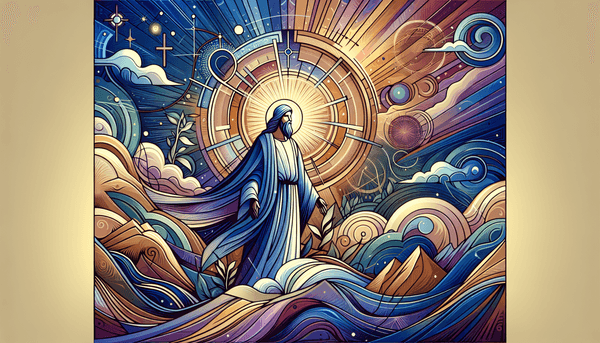Learning from the Life of Moses
The life of Moses is a testament to the cost of faith. Choosing to leave the splendor of Pharaoh's household, Moses aligned himself with the Hebrews, embracing God's calling over earthly power and privilege. This act of faith is echoed in Hebrews 11:24-27, which highlights how Moses chose to be mistreated along with the people of God rather than enjoy the fleeting pleasures of sin. His life challenges us to consider where our own allegiances lie and to prioritize our spiritual journey. Furthermore, Moses' encounters with God, such as at the burning bush (Exodus 3:1-6) and receiving the Ten Commandments (Exodus 20:1-17), underscore the necessity of direct communion with the divine. These moments are pivotal, for they shaped Moses' faith and, by extension, the faith of an entire nation. His perseverance against opposition, bolstered by the assurance of God's presence (Deuteronomy 31:8), sets a powerful example for us to remain unwavering in our own faith.
The Story of Abraham: A Journey of Trust
Abraham's narrative is a masterclass in trusting without seeing. Called to leave his homeland without knowing his destination, he stepped out in faith, as recorded in Hebrews 11:8-10. Abraham's journey exemplifies the essence of Proverbs 3:5-6, which teaches us to trust in the Lord with all our hearts and lean not on our own understanding. His willingness to follow God's lead, despite the uncertainty of his path, reveals the profound impact unwavering faith can have, not just on our lives but on generations to come. Abraham's trust in the Lord's guidance brought him to the fulfillment of divine promises and established a legacy of faithfulness, as epitomized in Romans 4:18-22. His story encourages us to embrace the unknown with faith and to witness how such trust can yield blessings beyond our imagination.
Conclusion
The examples of Moses and Abraham are more than just stories; they are blueprints for our own faith journeys. Through their experiences, we learn the value of prioritizing our relationship with God, the importance of trusting in His guidance, and the power of a community of believers. As we reflect on their lives, we are reminded that our choices have both immediate and eternal consequences. May their legacies inspire us to pursue a life of faith, to trust in the unseen, and to persevere through the trials we face, with the assurance of God's unwavering love and the hope of His eternal promises.
FAQ
Q: What can we learn from Moses' decision to forsake the privileges of Pharaoh's household?
A: Moses' decision teaches us about the importance of prioritizing spiritual values over material or social advantages. It challenges us to consider where our own allegiances lie and to prioritize our spiritual journey.
Q: How does Moses' encounter with the burning bush and the Ten Commandments emphasize the need for personal relationship with God?
A: These encounters highlight the need for direct communion and communication with God, which is vital for nurturing a faith that can endure trials and difficulties.
Q: What does Moses' perseverance in leading the Israelites teach us?
A: Moses' perseverance shows us the value of unwavering faith rooted in the promise of God's presence and deliverance, encouraging us to trust in God's guidance even when faced with opposition.
Q: How does the example of Moses encourage us to maintain faith through adversity?
A: Moses' unwavering trust in God, even in the face of daunting obstacles, serves as a powerful example of maintaining faith through adversity and trusting in God's guidance and deliverance.





